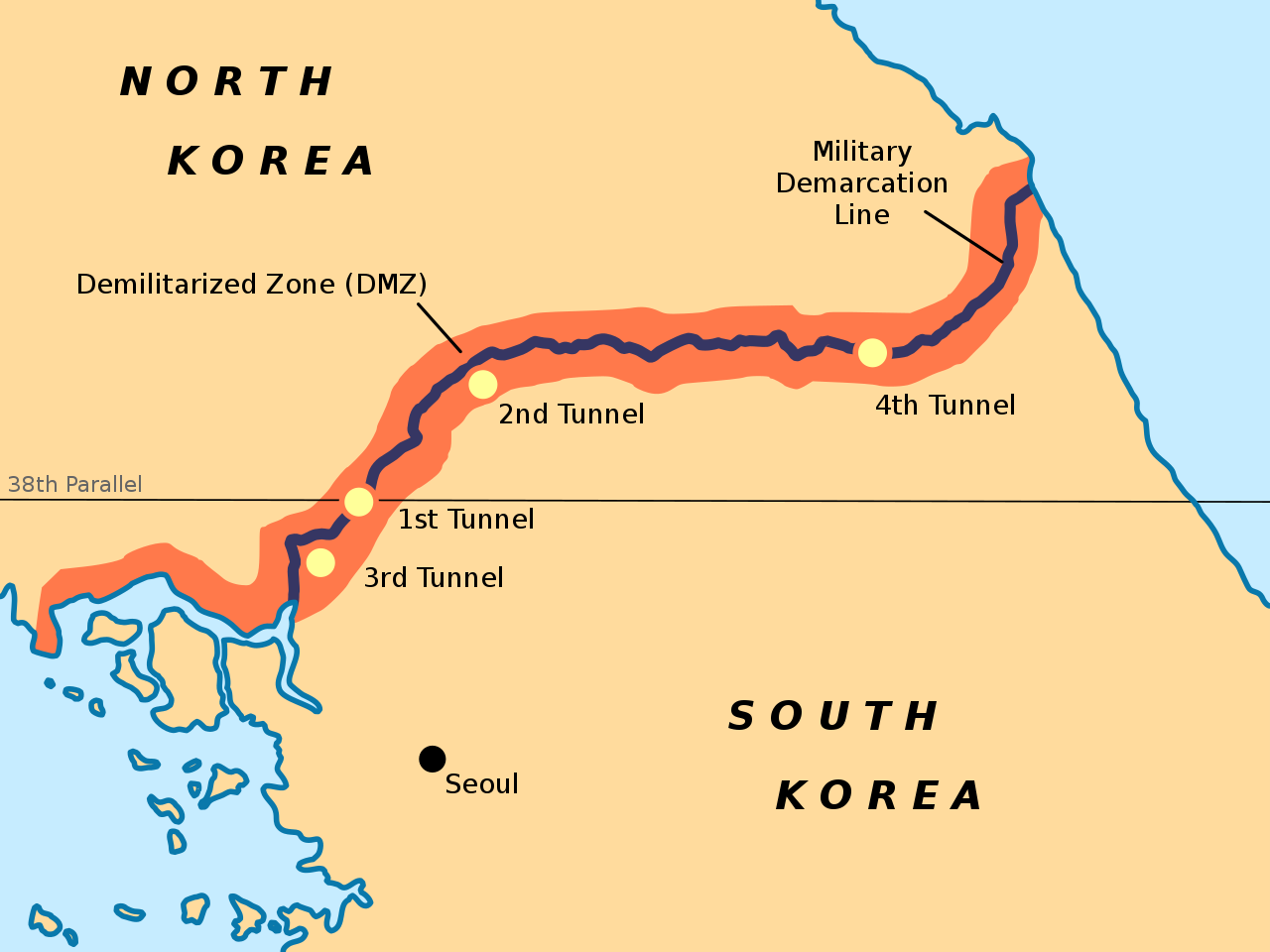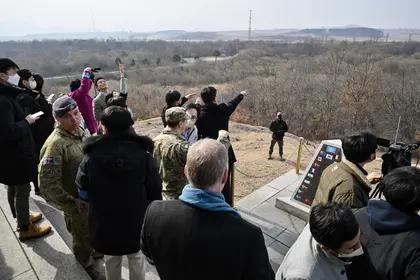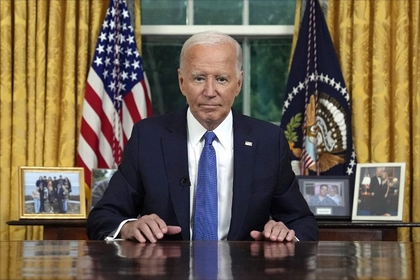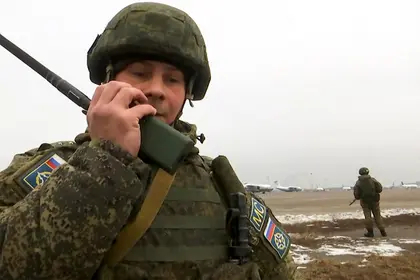Talks about the possibility of a negotiated end to the war between Russia and Ukraine have recently revived amid expectations of a new Russian offensive. The most actively discussed is the so-called "Korean scenario."
Russia’s former President President Dmitry Medvedev hinted at this option, and it is also understood to have been discussed in Western political and analytical circles. However, Oleksiy Danilov, secretary of the National Security and Defense Council of Ukraine, issued a firm rebuke to Medvedev, stating "Ukraine is not Korea."
Let’s delve a little deeper.
What is the "Korean scenario?"
This scenario is based on a historical precedent – specifically, how hostilities halted following the Korean War of 1950-1953 . Formally, it was a war between North Korea and South Korea, although China and the USSR supported North Korea’s communist regime, while the U.S. and a number of Western countries under the United Nations (UN) flag joined the war to protect the sovereignty of South Korea.
It was the first local "hot" war after the beginning of the Cold War – a confrontation between the capitalist countries of the West and Communist authorities in the eastern camp. Both sides of the conflict involved major powers in possession of nuclear weapons. However, the main interest is the way the Korean war ended – without a peace treaty, and based only on an agreement to end hostilities by fixing a division line along the territory of Korea, known as the 38th parallel.

Hungary to Block EU Funds For Member States Until Ukraine Allows Lukoil Transit
Why has this scenario been considered in relation to Russia’s war in Ukraine?
It mainly comes down to the incompatibility Ukraine and Russia’s respective negotiating positions, and the seeming impossibility of finding any realistic peaceful compromise.
Ukraine does not want to relinquish any part of its territory currently occupied by Russia, and is unlikely to give up those regions that Russia says it has officially annexed. Therefore, the most likely scenario to stop the war is an agreement on the cessation of hostilities along a defined front line.
How might the "Korean scenario" benefit Russia?
In starting a full-scale war against Ukraine in Feb. 2022, Russian President Vladimir Putin wanted to “return” our country to the control of the Kremlin. He also used concocted justifications like “denazification” and “demilitarization” to sell his plan to an easily manipulated domestic Russian audience.
Moreover, he issued ultimatums to the West, demanding that NATO return to its 1997 configuration. One year late, Russia is without a victory. It has not even succeeded in taking full control of the regions it illegally annexed.
Putin cannot win this war, but he doesn’t want to lose either. So, it begs the question – does Russia have enough resources for a protracted conflict on anything like the same scale?
A humiliating defeat for the Kremlin would involve the loss of all occupied territories, including Crimea. This would likely spur an internal political crisis in Russia. However, freezing the current war in Ukraine, while retaining control over at least part of the land it has grabbed, would be partially beneficial for Moscow.
Propaganda could pass that off as a relative victory. Such a scenario would also preserve the levers of military and political pressure on Ukraine and indirectly on the West. Undoubtedly, strong pro-Russian war supporters would be dissatisfied and there would be criticism and accusations, leading to a maelstrom of internal political instability within Russia.
Still, freezing the current war against Ukraine could potentially look like the lesser of two evils for Putin.
What benefits and risks might the "Korean scenario" bring to bear for Ukraine?
The main positives include ceasing all hostilities (such as shelling and missile strikes on Ukrainian cities and infrastructure assets); preserving the lives of Ukrainian fighters and the civilian population); the return to peaceful life; and the creation of prerequisites for the restoration of the national economy.
If the "Korean scenario" is implemented based on what Ukraine demands – a return to its 1991 borders – it would be the best option. But, it is another matter entirely should this scenario be implemented before the liberation of all occupied territories.
Some might ask why we need Crimea and Donbas, where the vast majority of the population is pro-Russian. It’s true that the liberation of these territories would create a big internal problem, but the absolute majority of Ukrainians are in favor of the total liberation of all our land that’s occupied by Russia.
The highest risk of the "Korean scenario" is that keeping part of the occupied territories under Russian control might be rejected by most Ukrainian citizens. Such a scenario would then inevitably be slammed, not only by the opposition but also many supporters of the incumbent government.
 Photo:Wikipedia
Photo:Wikipedia
This might result in an internal political crisis. From a strategic point of view, a key risk is that this scenario doesn’t bring sustainable and guaranteed peace, but rather a temporary suspension. This means it could easily fall back into a new hot phase and swiftly put hopes of Ukraine’s economic recovery to bed. Investors and financial donors would not want to take such risks in investing in Ukraine.
So, how likely does the “Korean scenario” look on balance?
The risks and problems look too difficult.
1. The attitude of Ukraine’s Western partners – based on direct and indirect signaling – is evidently ambiguous. There is a sincere desire to help Ukraine to resist Russia’s invasion; and there is an understanding that most Ukrainians do not want to give up any of the occupied territories;
2. It is already apparent that Putin would not make a civilized partner during negotiations and that he cannot be trusted
3. Our Western friends are concerned that the war with Russia may drag on;
4. There are limited resources of weapons and ammunition, while internal socio-economic and political problems are emerging;
5. Fears remain about a potentially uncontrolled escalation of the military conflict in Ukraine and the risk of a direct military confrontation between Russia and NATO, threatening to turn itself into global nuclear war.
To summarize, the "Korean scenario" is not a priority for Western leaders and political elites. However, it has not been fully rejected and can still be considered under certain conditions.
But, the "Korean scenario" doesn’t look likely because both Russia and Ukraine hope to turn the tide of the war in their favor. For the next six months, or rather until October, both sides will try to conduct offensive actions and realize their political interests by military means. Based on the results of these military operations, the question will inevitably arise: "What's next?"
The "Korean scenario" will be considered if the war remains protracted, and if it becomes clear that neither side stands to gain an advantage and deliver a decisive win. That's when negotiations could begin.
The domestic political situation in Russia and Ukraine, as well as the general state of international affairs, will influence the course and outcome of such negotiations.
During the Korean War, two years passed between the start of the stalemate in military operations and the beginning of the negotiation journey ahead of a final agreement.
Ukraine can therefore consider the "Korean scenario" only if it is inevitable and where society at least partially accepts it.
Needless to say, both the course of the war and its outcome could follow quite different scenarios. For Ukrainians, one of those is called total victory.
The views expressed are the author’s and not necessarily of Kyiv Post.
You can also highlight the text and press Ctrl + Enter






